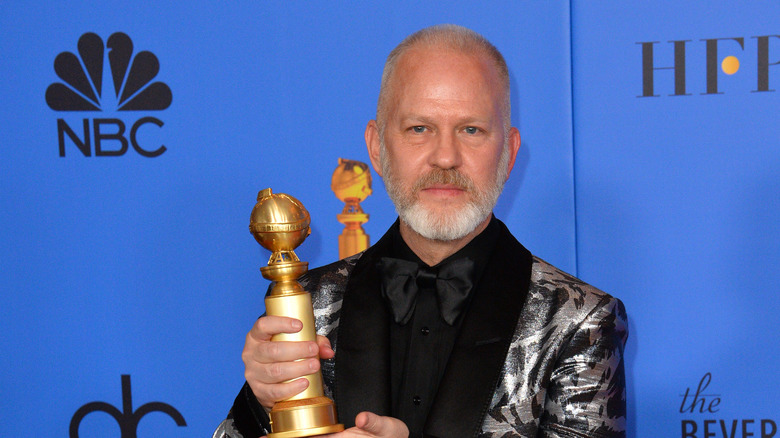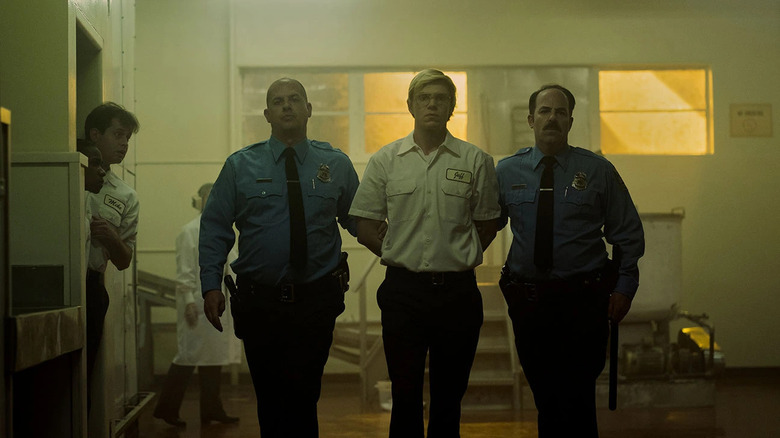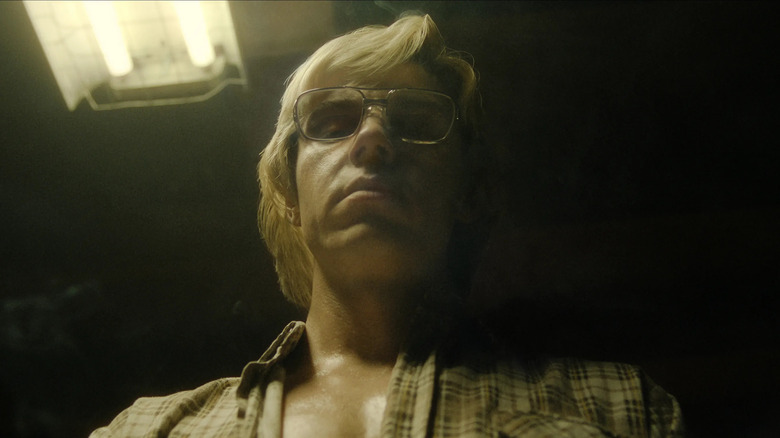How Accurate Is Netflix's Monster: The Jeffrey Dahmer Story?
It seems like just yesterday that the internet was freaking out over the first footage of former Disney Channel star Zac Efron's turn as a real-life murderer. In the Netflix film "Extremely Wicked; Shockingly Evil and Vile," Efron plays prolific serial killer Ted Bundy, who committed over 30 murders throughout the 1970s (via Popsugar).
As fans of "High School Musical" saw, for the first time, this incredibly muscular and undeniably handsome actor embodying one of the most vicious killers ever caught, an interesting question permeated the online aether — is Efron accurately portraying a reprehensible man who was, by some accounts, considered to be darkly attractive? Or is he merely a part of a sensationalized project attempting to transform a horrific true story into a sexy Hollywood affair worthy of America's insatiable obsession with killers?
It's a tricky question to answer definitively, though it rests at the core of any true crime project. Yes, people — for various reasons — enjoy watching dramatizations of real-life tragedies, but does that make these projects inherently unethical?
This dilemma was very likely on the mind of Ryan Murphy, writer, director, producer, and creator of countless hit TV shows ("American Horror Story," "The People Vs. O.J. Simpson," "Glee"), and the powerful mind behind Netflix's most recent foray into dramatized true crime — "MONSTER — The Jeffrey Dahmer Story." Online buzz around the show is already electric, but viewers may be wondering how much of the story actually happened — while potential viewers may be wondering if the story is as sensational as it looks.
Ryan Murphy's track record for historical accuracy
Ryan Murphy has an allegedly spotty track record regarding accuracy in his projects, many of which skew heavily historical. Whether chronicling the court cases of O.J. Simpson and former-president Bill Clinton, the "Feud" between Bette Davis and Joan Crawford, or the murder of Gianni Versace, the filmmaker is clearly attracted to real-life drama. He does depict a lot of larger-than-life but ultimately real events (such as O.J. Simpson's dramatic police chase) — and while he occasionally embellishes reality for artistic effect, some have accused him of stretching the truth beyond recognition.
Actor Olivia de Havilland filed a lawsuit against FX and Murphy, alleging that her portrayal in "Feud" tarnished her reputation and put words in her mouth, according to Rose Law Group. In regards to the Ewan McGregor-led drama "Halston," which chronicled the titular real-life fashion designer, the Halston family published a statement decrying the show as "inaccurate" and "fictionalized" (via Insider). If Murphy's detractors are to be believed, it may be challenging to take his most recent project at face value. Luckily, Decider has fact-checked "MONSTER" themselves — and their findings draw a unique conclusion for the true crime genre.
Is MONSTER an accurate portrayal?
According to an article published by Decider, Murphy's series "May Be One of the Most Accurate True Crime Dramatizations Brought to Television." In the body of their piece, they assert that most of the series' outrageous and disturbing events actually came to pass. This seems to be especially true for the specter of institutional malpractice haunting this case — Glenda Cleveland's ignored police call and the failure to save 14-year-old Konerak Sinthasomphone are both noted as accurate (right down to the gross "delousing" joke made by one of the police officers picking up Sinthasomphone).
By adhering as closely as possible to the truth, Decider argues, the series earns the drama it achieves, even to the point of showcasing an empathetic side of Dahmer — a person who was ultimately failed by the system. Still, they report that "MONSTER" resists the trope of glorifying Dahmer, presenting him in as realistic and unattractive a light as possible — which may assuage some fears after the casting of widely beloved actor Evan Peters (via Decider). While they explore the societal causes and implications of his actions, the victims whose lives were destroyed by those very actions are always of paramount importance. Their perspective is inescapable even in the most surface level of interpretations.
Is all of it true?
Decider does note some smaller inaccuracies. In reality, Dahmer did not drink blood from a bag while working at a plasma center — he consumed it from a vial. Similarly, Dahmer's own killer, Christopher Scarver, is shown to attack fellow inmate Jesse Anderson before going to Dahmer — in real life, Scarver stated that he attacked Dahmer first. It would be tough to make the case that these changes sully a story that goes to great lengths to preserve the reality of Dahmer's case.
Being truthful feels especially important when dealing with such a well-known subject as Jeffrey Dahmer. It's all too easy to forget his victims, to instead conjure a distracting image of a cinematic criminal mastermind. In doing so, viewers and creators mythologize Dahmer and fail to learn the lessons of this horrible — and arguably avoidable — historical event. The most recent "Dahmer" film, "My Friend Dahmer," followed the killer's last years in high school and took a deliberately accurate approach as well — largely due to the fact that the graphic novel the film is based on was autobiographical (via International Business Times).
Its writer, John Backderf, began writing the story of their friendship after news about Dahmer's crimes began to break publicly. Suddenly, the idiosyncrasies he (and many others) had seen and dismissed seemed like missed signs. In a 2012 interview, he said, "It just seems to me that at every crucial point on his march to the edge of the abyss, it was an adult's failure that propelled him along the way" (via Publishers Weekly). These themes of institutional failure and the consequences of societal neglect appear alive and well in Murphy's "MONSTER" — and with a victim-focused approach, perhaps this adaption is best crafted to deliver the vital lessons of this tragedy.



